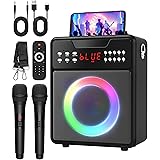HIGHLIGHTS
- LGBTIQ+ Muslims often face exclusion within the wider Islamic community.
- Communal isolation peaks during religious and community congregations such as Ramadan, advocates say.
- Melbourne-based BridgeMeals provides safe spaces during Ramadan by organising iftars and other social events year-round.
The month of Ramadan is a deeply religious time for Muslims as they fast from daybreak to sunset. It is also a time when worshippers perform special prayers, contemplate life goals and gather with friends and family.
Oftentimes, Muslims excluded from such gatherings comprise members from the LGBTIQ+ community.
Abdurrahman, who arrived in Australia from Egypt four years ago, says this Ramadan marked the first that he could openly express himself as a gay man, a Muslim and as an integral member of the larger community.
That community is the Melbourne-based BridgeMeals, an organisation run by and for LGBTIQ+ refugees, asylum seekers and migrants.
Established in 2017, the group held an iftar every week during Ramadan this year for the community of Muslims, ex-Muslims and cultural Muslims.
Cultural Muslims are those born in devout families but don’t practice Islam or perform rituals. However, they do celebrate iftars and Eid as cultural events.
When it’s not Ramadan, BridgeMeals distributes free meals and organises mental health support sessions.
“The main purpose is to provide a non-judgemental safe space,” says leader Abdullah Yahya*.
The last iftar of this Ramadan was hosted by BridgeMeals on 16 April.
It was an invitation-only affair, where members of the LGBTIQ+ community, their families and allies were invited.
The event’s poster shared on social media did not divulge the iftar’s venue or time, a move to ensure the safety of its attendees.

BridgeMeals volunteer Basem Kerbage explains the reasons behind the secrecy.
“We posted on social media about our free Queer iftar event, inviting people to join us.
“Our focus is on mental health, charity and community. We do not focus these events on religion.
“Unfortunately, that didn’t stop the hate,” Mr Kerbage tells SBS Turkish.
We received over 300 comments on the post with approximately 140 being from the Muslim community calling us mentally ill, disgusting, that we need to repent and remind our community why their fear and concerns were merited.
BASEM KERBAGE, VOLUNTEER, BRIDGEMEALS
At the iftars, the atmosphere is festive.
Volunteers prepare the meals that are served to the guests. They also usher in the guests.
People then form squares on the floor around the drinks and plates where food is to be laid out.

Food served at the BridgeMeals Weekly Queer iftars was provided by community volunteers. Credit: Ismail kayhan
Celebrating with the community
This safe space created for LGBTIQ+ Muslims is something Abdurrahman and Sasja Sydek are enjoying during their first Ramadan with BridgeMeals.
Abdurrahman was born and raised in Egypt. As a gay man in that country, he says he couldn’t see a future to grow and be himself.
Since arriving in Australia, he has joined numerous LGBTIQ+ groups which helped him find acceptance — personally and socially.
“When I was younger, being gay and Muslim created a lot of confusion.
“There were many years when I fasted just for 15 days, rather than the full month before being gay stopped me from fasting,” Abdurrahman explains.
Ramadan being a deeply religious time for the Islamic community, made Abdurrahman feel internally conflicted about his faith and his sexuality, which led him to discontinue his fasts halfway through the holy month.
I felt I was not worthy of fasting, which created a lot of barriers with the rest of the community.
ABDURRAHMAN, EGYPT-BORN LGBTIQ+ MUSLIM
The BridgeMeals community provided him with a welcoming space to truly enjoy Ramadan, he says.
“In the first iftar, we put the azaan [call to prayer] on. We shared some prayers.
“In the second one, my partner and I prepared some food. I was able to share my food and my culture.
Celebrating Ramadan with my own rules, in my own way is a very enriching experience.
ABDURRAHMAN
“It added a new layer [to my celebration] that I didn’t know I was missing, to be honest,” he adds.
If it were not for such safe spaces, the alternative for many LGBTIQ+ Muslims would be to remain isolated and alone during Ramadan and survive in spaces where they need to remain closeted, Mr Yahya explains.
LGBTIQ+ Muslims and their families at the BridgeMeals Queer Iftar in Melbourne. Credit: BridgeMeals
Ms Sydek was born in Singapore to a strongly devout Muslim Malay family.
As a transgender woman in that country, discrimination was an aspect that she thought she “had to endure”.
But coming to Australia allowed her to learn that there is more to this side of her identity.
“I learnt about my rights here. I learnt about my self-worth here. I found myself again for who I am,” she says.
However, she admits to losing her faith as she was transitioning.
The Muslim community told me I couldn’t be trans and Muslim. I had to pick one.
SASJA SYDEK, SINGAPORE-BORN LGBTIQ+ MUSLIM
She said it took a trip to Malaysia’s capital city, Kuala Lumpur, to reconnect with her faith.
“I met a lot of transgender women who are practising Muslims there. They told me God will love you for who you are. It’s between you and God,” Ms Sydek adds.
Having left home at 16, she would often find solace from back home.
“I usually call my grandmother and ask her to read some surah from the Quran just for me to remember the words,” Ms Sydek says.
The founder of Trans Sisters United, Ms Sydek says this year was her first year celebrating Ramadan in Australia as part of a larger community.
Having settled in Australia in early 2000, she doesn’t hide her enthusiasm for her first BridgeMeals iftars.
Oh my god! This is the best Ramadan I had in Australia, to be honest.
SASJA SYDEK
She says the previous Ramadans usually featured iftars with close friends and family, but this was the first with fellow members of the LGBTIQ+ community.
Its campaign of togetherness has seen BridgeMeals gain popularity among the greater community.
Abdurrahman says that he and others were invited to the Victorian premier’s iftar on 15 April.
There were about 700 people from all around the Muslim community. I’m not sure if they knew whether we were queer or not, but we were all queer, trans, gay and lesbian.
ABDURRAHMAN
Todd Fernando, Victoria’s LGBTIQ+ Commissioner and Human Rights Commissioner Ro Allen were also seated at their table.
“We were feeling very safe,” he said.
The way we view Islam or being a Muslim and a queer Muslim is a personal journey.
ABDULLAH YAHYA
Having the experience of being traumatised by homophobic Muslims, we can understand where they are coming from.
ABDULLAH YAHYA
Identifying as a millennial, 26-year-old Mariam believes it’s a “matter of time” before the broader Muslim community in Australia accepts its LGBTIQ+ members, but conceding it may take “a long, long time.”

Mariam at the BridgeMeals iftar. Credit: Ismail kayhan
We are definitely setting the scene for the next generation to be more comfortable with it. Gen Z are already more at ease.
MARIAM, AUSTRALIAN-BORN LGBTIQ+ MUSLIM
Neither she nor her family is particularly integrated into the Lebanese community — to which they belong — which is why she did not feel the social stigma associated with coming out.
However, she believes the number of Muslims coming out on social media and during events such as queer iftars, will help the wider Muslim community be more accepting of LGBTIQ+ Muslims.
*Pseudonym used due to safety concerns
Note: This article have been indexed to our site. We do not claim legitimacy, ownership or copyright of any of the content above. To see the article at original source Click Here















